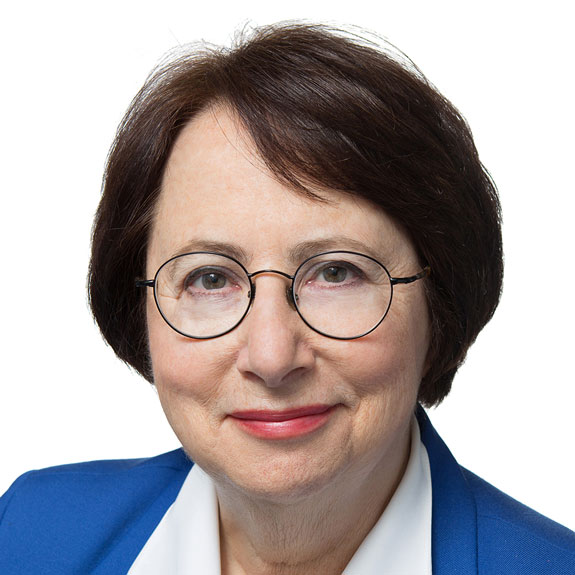 By Trudy Rubin
By Trudy Rubin
When it comes to Western political leaders, we have definitely arrived at The Time of the Woman. Hillary Clinton is the first serious female candidate for U.S. president, Theresa May just took over as British prime minister, and Germany’s Angela Merkel remains the most powerful European politician. Moreover, the nationalist Marine Le Pen will most likely make the final round for French president in 2017.
So why not a woman to succeed Ban Ki-moon for secretary-general of the United Nations when he steps down later this year?
At a time of overwhelming global crises, when the U.N. is flagging and international institutions are under attack, might a female leader provide the spark to rejuvenate the world body? That’s a question member states are pondering. Even Ban has weighed in, saying it is “high time for a secretary-general to be a woman.”
That would be a big jump for an organization that had a reputation for rampant sexism not so long ago.
The top U.N. official is selected by the Security Council in what used to be a secretive process that generally rotated the job by region. Last year, the rules were changed to produce a more transparent selection process; six of the 12 candidates are women, and the betting is that this year’s choice will come from Eastern Europe.
The Security Council will still make the final cut – and will conduct an informal “straw poll” on July 21.

Irina Bokova, a Bulgarian diplomat and the first female director-general of the
Paris-based United Nations Education, Scientific, and Cultural Organization (UNESCO).
I sat down in a Left Bank café with Irina Bokova, one of the leading candidates, who is a Bulgarian diplomat and the first female director-general of the Paris-based United Nations Education, Scientific, and Cultural Organization (UNESCO). I asked the elegant, gray-haired Bokova, who is fluent in English, French, Spanish, and Russian as well as her own language, why she thought a woman secretary-general could make a difference.
An Opportunity for a Woman to Make a Difference
“We need a critical mass of women to take up serious positions, so it becomes natural,” she told me. “I don’t say we are better than men, [but] it changes the overall culture of doing politics.” The implication is that a woman might do better at promoting programs for mediation and prevention of war.
Perhaps, although we seem to be entering a global phase in which testosterone-driven violence trumps efforts at conflict resolution. Still, there is every reason that qualified women should have the chance to show their stuff, and Bokova has become a role model for them.
“I put a stress on gender equality by making half my management team women,” she said. Under Bokova, UNESCO has worked intensively to expand education prospects for girls and women in poor countries.
Of course, the challenges facing the United Nations go far beyond gender parity. With xenophobic nationalism on the rise in the West, as well as in Russia and China, the future of multinational organizations is in question.
As civil wars and terrorism increase, U.N. negotiating efforts to end the Syrian conflict have failed, and its agencies have been deluged by refugee crises and pandemics such as Ebola. Meantime, peacekeeping operations (with 104,000 troops) are in a negative spotlight after allegations of sexual abuse by some its troops.
Fighting for U.N. Values and Actions Amidst Challenges
As for the job itself, the U.N.’s chief executive must simultaneously function as mega-manager, fund-raiser, mediator, and global proselytizer for peace, economic development, and human rights. Even when members aren’t listening.
I asked Bokova why she would even want the job. “My husband asks me the same question,” she replied with a laugh. But she insists – despite a world moving in the opposite direction – that she still fervently believes in multilateralism and the possibilities of preventive action.
She is no stranger to uphill battles. On her watch, UNESCO, whose member states often take anti-Israel positions, developed a teacher-training program and curricula on preventing genocide and on Holocaust education. Last year, she blocked a resolution by UNESCO’s executive board to reclassify the Western Wall of Jerusalem’s Old City as part of a holy Muslim complex while ignoring its status as Judaism’s holiest location. And she successfully fought to get jihadi looting and destruction of ancient Mideast cultural sites, such as Palmyra, officially labeled a war crime.
However, when UNESCO members recognized the state of Palestine in 2011, triggering a cutoff of U.S. dues, Bokova had to manage a 30 percent cut to her budget (a skill that led Ban to appoint her chair of a high-level management committee).
Promoting Women’s Leadership Role
Whether Bokova’s experience at UNESCO and as acting Bulgarian foreign minister will suffice to manage, let alone reform, a balky U.N. staff of 44,000 is a question. She must also overcome rumors, which she strongly denies, that she is close to Russia’s Vladimir Putin. She notes that both her children live in the United States, one is a U.S. citizen, and her brief meetings with Putin were part of official U.N. delegations.
Then there are the five other female candidates, including ex-Croatian Foreign Minister Vesna Pusic and the head of the U.N.’s development program, Helen Clark, a former New Zealand prime minister. Not to mention those six male contenders.
But by promoting female U.N. leadership by her example, Bokova has already done the world body a service. Men have few bragging rights when it comes to running the United Nations. So why not give a highly qualified woman the chance?Φ
Trudy Rubin’s Philadelphia Inquirer Worldview column runs on Thursdays and Sundays. Over the past decade she has made multiple trips to Iraq, Pakistan, Afghanistan, Egypt, Turkey, Israel and the West Bank and also written from Syria, Tunisia, Lebanon, Iran, Russia, Ukraine, South Korea and China. She is the author of Willful Blindness: the Bush Administration and Iraq, a book of her columns from 2002-2004.
